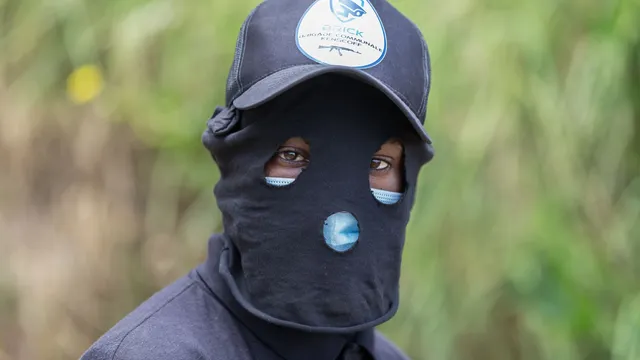
Haiti's capital falls under gang control as violence escalates
2025-07-03 21:29- Haiti's gangs have gained near-total control over Port-au-Prince, with 90% of the capital now under their influence.
- Gang violence is escalating, affecting both the southern regions and previously peaceful areas.
- Without increased international action, there could be a total collapse of state presence in the capital.
Express your sentiment!
Insights
Haiti has been experiencing a severe governance crisis following the assassination of President Jovenel Moïse in July 2021. Since then, gangs have seized control, now dominating approximately 90% of the capital, Port-au-Prince. This situation has deteriorated as criminal groups extend their influence into previously unaffected areas, weighing heavily on the local populace. Reports indicate escalated gang-related violence, particularly in the southern regions, with attacks on police and law enforcement becoming more frequent. The United Nations has stated that as state authority wanes, gangs are assuming the role of governance by filling the void left by inadequate public services. They are strategically positioning themselves to disrupt legal commerce, particularly through the control of key trade routes. This not only exacerbates violence but also increases the cost of essential goods, severely impacting food security in a country already grappling with socio-economic challenges. International responses have been hampered by limited resources; a U.N.-backed mission led by Kenyan police is undersized and underfunded, operating at about 40% capacity with no substantial military support outlined. The U.N. Secretary-General has proposed various assistance measures, including drone support, but institutional responses remain stagnant amidst ongoing gang violence and territory encroachment. As vigilante organizations emerge amid frustration with the state’s inability to maintain order, their activities have complicated the scenario, leading to numerous human rights violations and extrajudicial killings. The mixed response of communities, some cooperating with gangs, reflects distrust towards the established authorities. Without enhanced international support, there exists a real risk of complete governmental collapse in Haiti, leaving the population vulnerable and further entrenched in poverty and violence.
Contexts
Haiti has been experiencing severe gang violence, which has exacerbated the already critical socio-political situation in the country. As of July 2025, the escalation in violent crime is associated with a power struggle among various armed gangs, each vying for control over territory and resources. The gang leaders have established significant influence over several regions, particularly in the capital, Port-au-Prince. The violence has resulted in a staggering increase in homicides, kidnappings, and other forms of violence against civilians, creating an environment of fear and instability for the population. The widespread chaos has displaced thousands of people, further straining the limited resources and humanitarian aid available to the nation. The international community has expressed concern, but their responses have varied in effectiveness and timeliness. The worsening gang violence is intertwined with deep-seated issues of poverty, corruption, and political instability that have historically plagued Haiti. As government institutions struggle to maintain order and provide basic services, the influence of gangs has only grown stronger, filling the power vacuum left by weak governance. Many Haitians view gangs not only as perpetrators of violence but also as alternative sources of authority and, at times, social services. The fragile political environment has hindered efforts to establish a coherent response, making it difficult for law enforcement to collaborate effectively with communities that live under the threat of gang violence. Efforts to establish a unified response to this crisis have faced numerous obstacles, including a lack of resources, ongoing political instability, and a general mistrust of law enforcement agencies. The government, grappling with these challenges, has sought international assistance but has often encountered delays and varying levels of engagement from other nations. Many in the international community have called for a more coordinated approach to stabilize the situation, including strengthening local law enforcement, providing humanitarian aid, and supporting community resilience initiatives. However, as of now, tangible solutions are still in development phases, with many feeling the urgency for immediate and effective action is paramount. The current situation in Haiti remains precarious. Without decisive actions and a commitment from both the Haitian government and the international community, the cycle of violence is likely to continue. Addressing underlying socio-economic factors, alongside a robust security strategy to dismantle gang operations, will be crucial for future stability in Haiti. The international community must also recognize the importance of long-term engagement that goes beyond immediate relief efforts, focusing on establishing sustainable governance and development to prevent future crises.